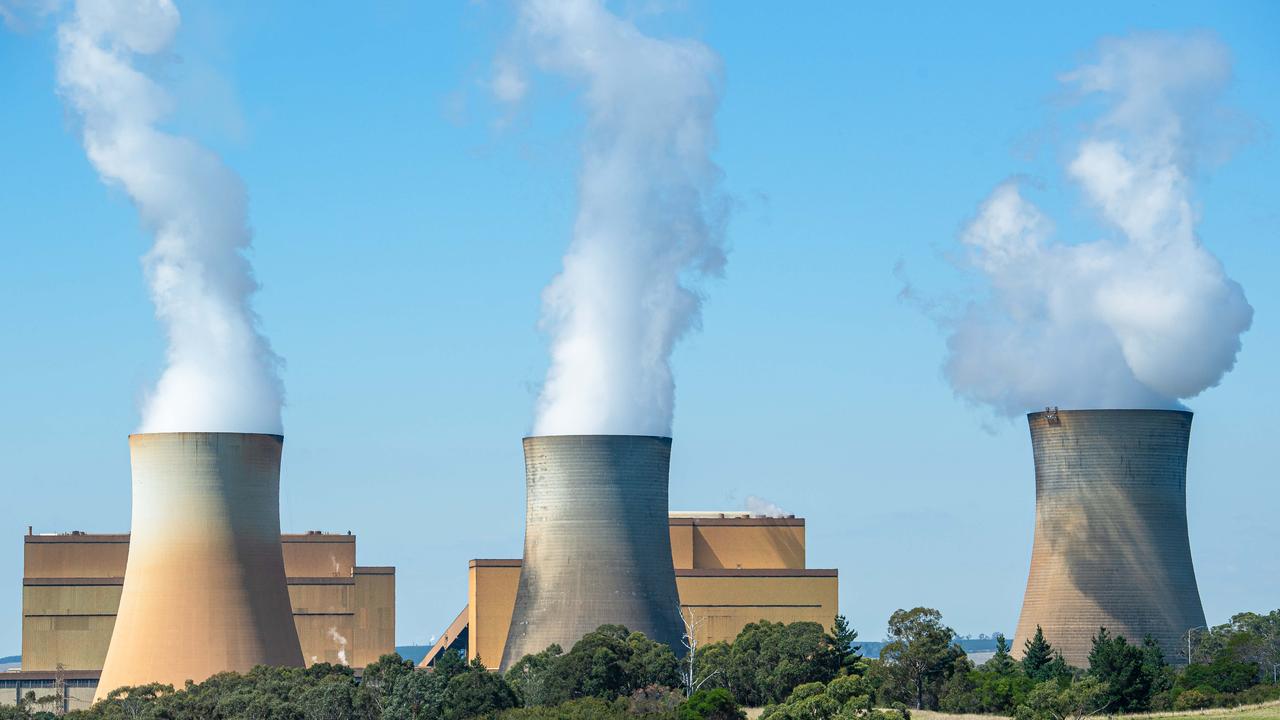Qantas shows why Virgin is racing for its IPO
Qantas’ modest earnings upgrade confirms it’s as good as it gets in the airline industry thanks to sky-high ticket prices and strong forward bookings. But it won’t last forever.

Business
Don't miss out on the headlines from Business. Followed categories will be added to My News.
It’s little wonder that Virgin Australia owner Bain Capital is rushing to get its $1bn stock market listing away by November.
If all goes to plan that will mark three years in the hands of private equity and a windfall for Bain which has already recouped most of its upfront investment in the form of dividends.
The latest (modest) earnings upgrade from Qantas – its fifth in under a year – shows it is as good as it gets in the airline industry as fuel prices fall away, ticket prices hold sky high and forward bookings remain strong. Despite the supply chain headaches and the persistent shortage of qualified labour, the aviation market is starting to return to some normality.
A quarterly earnings update from Qantas showed the profit boom continued into the June quarter, with the carrier tipping a full year pre-tax profit of between $2.42bn and $2.48bn for the full year.
This is just slightly ahead of the average market estimates of $2.4bn for the year, which means the bumper upgrades are now behind Qantas.

One notable point is Qantas’ second-half profit is now expected to crack the $1bn market for the first time, as Covid-19 contingency costs – including having aircraft on standby – fall away.
As promised, longstanding chief executive Alan Joyce will leave Qantas in November in much better financial shape than arguably he had been running the airline before Covid-19 hit.
Today it has lower debt and is spitting out record profits. Without a doubt the rebound has come at the cost of customers who are paying with higher fares, although Qantas is quick to point out that its record on reliability has improved from the end of last year.
It’s a long way from the depths of the Covid-19 crisis when Qantas was forced to borrow any way it could and issue an emergency raising given it was just weeks away from collapsing.
The cash it has been spitting out has allowed it to extend its share buyback by a modest $100m, leaving investors wanting for more.
Buybacks are the only way it can return funds to shareholders while $3bn in accumulated losses are sitting on its balance sheet. At the current run rate it should be in a position to start paying dividends by February next year.
With rivals bringing more capacity online and the economy reacting to higher interest rates, the first cracks have started appearing. The closely watched revenue per available seat kilometres started to soften and the international including freight started to feel the squeeze of more competition.
That means Qantas under a new chief executive Vanessa Hudson, and Virgin boss Jayne Hrdlicka, face a different aviation market later this year and into next.
One selling point for Qantas ahead of its strategy briefing next week – its first in four years – is the competitive advantage of new aircraft adding to the fleet. In total 12 new aircraft are expected this year. Following that there is a massive investment cycle over the coming decade with more than $12bn to be spent to see nearly 300 new aircraft delivered.
A key development for Qantas is the boardroom overhaul underway with the naming of former American Airlines chief executive Doug Parker to the board. The looming exit of Joyce as CEO, had set to leave Qantas with just one director with direct aviation experience.
While non-executive directors don’t run the airline and boardrooms should be from diverse backgrounds, it helps to have some expertise when it comes to interrogating management.
Parker will sit on the board from today ahead of a shareholder vote at the company’s annual meeting in November. He also brings to the table critical experience of the US and international markets.
Current non-executive director, Michael L’Estrange – the former DFAT and Cabinet secretary – will retire at the AGM after three terms.
Prior to the appointment of Parker, Tony Tyler was the only other Qantas director with aviation experience. And being based in Geneva, he was also Qantas’ only international executive. Tyler was a career executive with Cathay Pacific including its chief executive from 2007 to 2011.
Firetail view
Two top-ranked stock pickers Michael Bell of Solaris Investment Management and Blake Henricks of Firetrail investments were running over the big market themes at Morningstar’s annual investment conference.
One point raised by Henricks, is while decarbonisation is a big discussion point across the market – investor returns still count.
“If you’re going to invest in a theme as it were, you want to make sure it’s profitable,” Henricks told the conference. Henricks has recently returned from investor tours in the US and Europe and said some new green technology such as hydrogen or EV charger manufacturers are still challenged.
The companies set to make money from green spending are likely to be the owners or providers of raw materials such as copper and also the “picks and shovels” service providers providing the support to the miners.
And with rising interest rates too starting to bite business, Solaris’ Bell points out this is why strong balance sheets count. Low debt matters more than anything, particularly for cyclical stocks.
“No CEO has control over the iron ore price, the lithium price, the gold price, the gas price, or the oil price. What we want to see from companies we invest for our clients is a solid balance sheet that sees them through that period. He points out the steelmaker Arrium that collapsed in 2015 under $2.5bn debt remains a cautionary tale about the latest hot thing lithium – an industry which is going through rapid expansion. At the time Arrium was a high cost iron ore producer but increased their exposure at potentially the top of the cycle using debt. Despite pushing soaring highs Iron ore is volatile and in 2015 it collapsed to $US50 a tonne – below the cost of Arrium’s mining costs, which meant the steelmaker simply ran out of financial runway. Arrium was later carved-up through administration with the Whyalla steelworks going to Sanjeev Gupta’s GFG Alliance
“As you’re talking to fund managers about cyclical stocks, the first thing you should ask is ‘what does the balance sheet look like?’,” Bell says.
BNPL clarification
Feedback over Monday’s piece around buy now, pay later has pointed out to this column that the Reserve Bank updated its position in October 2021 saying it was time for the sector to remove their no-surcharging position. Crucially this was only in the form of a voluntary recommendation.
Unlike credit and debit cards, the RBA doesn’t have the regulatory instrument to force BNPL to drop their no-surcharging position – which means the underlying cost of the transaction is passed to consumers. Treasury is now reviewing the RBA’s powers over emerging payments technology.
Originally published as Qantas shows why Virgin is racing for its IPO



